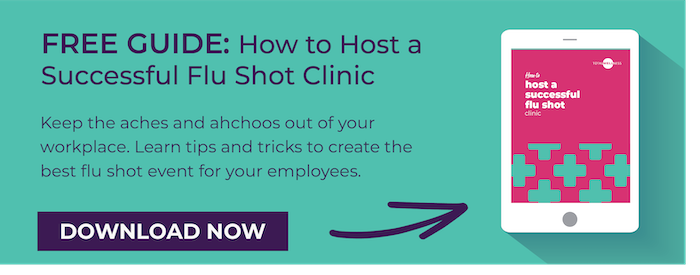As flu season starts all around the United States, the issue continues to come up: What about vaccination for health care workers -- doctors, nurses, and people who have any clinical contact with patients?
The CDC, the Advisory Committee on Immunization Practices (ACIP), and the Healthcare Infection Control Practices Advisory Committee (HICPAC) recommend that all U.S. health care workers get vaccinated annually against influenza. While the recommendation is strong, the implementation tends to fall short. Overall, the number of health care workers who reported having had an influenza vaccination increased in the 2012-13 influenza season compared to the 2011-12 season. The coverage rate for health care workers was estimated at 72% for the 2012-13 season, an increase from 66.9% in the 2011-12 season and 63.5% in the 2010-11 season. Coverage was highest among health care workers working in occupational settings with vaccination requirements (96.5%) and physicians (92.3%).
Ideally, health care workers would take individual responsibility for getting their yearly flu vaccination, but we can see from the data that this is not the case. The argument, then, is that health care institutions have an ethical obligation to step in and vaccinate hospital staff.
Requiring a mandatory flu shot can improve patient safety, as well as protecting health care workers. Mandatory staff vaccination help protect patients who are at the highest risk for flu complications and are most likely to be in a hospital setting: elderly, infants, patients with heart and lung disease, and patients with compromised immune systems.
Last year, the state of New York made a huge move by making flu shots mandatory for all health care workers. Anyone who has clinical contact with patients (including food handlers and people who transport patients) are required to get the flu vaccine or wear a mask at all times around patients.
Other health organizations have followed suit. As of the 2012-2013 flu season, all Johns Hopkins Medicine entities have adopted a mandatory vaccination policy. Fifteen states have legislation requiring that health care workers be immunized in certain circumstances. Maryland law currently requires proof of immunity for other communicable diseases such as measles, mumps and rubella for acute health care workers.
The struggle lies in the mandatory aspect of this policy; opponents argue that it encroaches on personal freedom. Other commonly reported arguments include religious objection, philosophical or intellectual objection, medical contraindication, rare but potentially serious medical risks (e.g., Guillain-Barre Syndrome), time constraints, and perceived low risk of infection. The most compelling argument is grounded in a third principle of medical ethics: respect for individual rights and autonomy. It is typically accepted that competent adults have the right to make decisions about their health care, including the right to accept or decline medical intervention.
However, health care workers almost always have the option to file for an exception and wear the surgical mask instead. We find that as long as this opt out option exists, health care workers aren't upset or offended by the flu shot mandate. When it comes down to it, the most important thing is to fulfill the ethical requirement "do no harm" -- and professional associations agree. Besides the CDC, the American Academy of Pediatrics, American Hospital Association, American Public Health Association, American Medical Directors Association and countless others support mandatory influenza vaccination among health care personnel.
Do you support mandatory flu shots for health care workers? Comment below!



